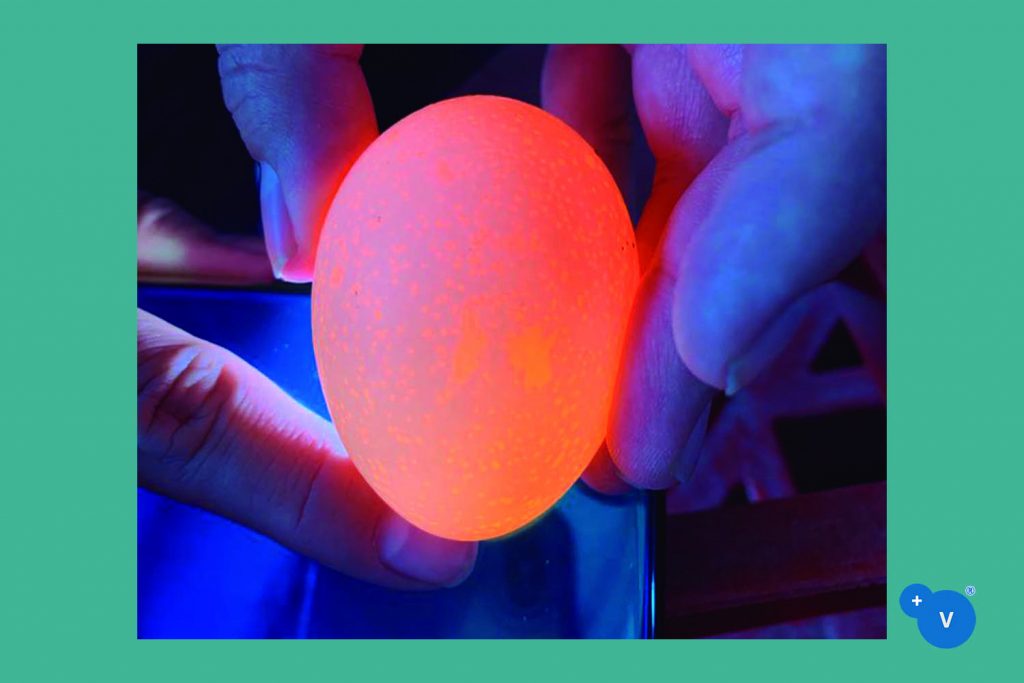21 Nov Eggshell quality: importance of zinc and manganese

Trace minerals are important in the metabolism of the animals as catalytic agents of all metabolic reactions. They are key for growth, development and productivity.
Zinc and manganese, as cofactors of enzymes involved in the synthesis of the eggshell, play an important role in egg quality.
Zinc
As we explained in this article, the eggshell consists of 95% of calcium carbonate. Calcium is obtained from skeletal mobilization or from the diet, while the carbonate is obtained from blood.
Carbonic anhydrase is the enzyme that produces carbonate from water and carbon dioxide in blood. Zinc is a cofactor of the enzyme carbonic anhydrase.

A lack of zinc in layer and breeder diets can lead to lower levels of carbonic anhydrase, resulting in shell defects, especially a higher occurrence of broken eggs and pigmentation defects.
The activity of carbonic anhydrase is reduced during episodes of heat stress and when drinking water is very saline. In these cases, an extra supplementation of zinc, preferably in organic form, is necessary to maintain good eggshell quality.
In breeders, a deficiency of zinc is associated with poor fertility, decreased hatchability and impaired growth and development of the embryo.
Manganese
The eggshell is made of mineral crystals which are stabilized by a matrix made of 70% proteins and 11% polysaccharides. The matrix is necessary for the correct deposition of calcium carbonate and other minerals during the eggshell formation.
Irregularities in the matrix lead to defects in the eggshell. For instance, alterations of the proteins in the matrix lead to pimpled eggshells.

Manganese is a cofactor of the enzymes glycosyltransferase and alkaline phosphatase, which are involved in the synthesis of polysaccharides and proteins during the formation of the matrix.
A deficiency of manganese leads to depigmentation defects in the shell, speckled eggs, mottled shells, thin and fragile shells, shell-less eggs and eggs with a more rounded shape.

In breeders, a deficiency of manganese is also associated with poor fertility, decreased hatchability and impaired growth and development of the embryo.
Advantages of chelated trace minerals
Chelated trace minerals have a higher bioavailability than traditionally used inorganic forms, for two main reasons:
- Chelated trace minerals do not go through a dissociation process in the acid pH of the gizzard or the intestine, remaining neutral and protected from chemical reactions with phytases and other compounds present in the gut.
- Chelated trace minerals are absorbed through a different mechanism than inorganic minerals, being transported by peptide or amino acid uptake systems.
Whenever there is an episode of high occurrence of eggshell defects, low fertility, poor hatchability, deficient nutrition, digestive problems or stress, chelated trace minerals are much more effective to solve the problem in a quick way.
Product of choice
PhytoMax© is a combination of vitamins, chelated calcium, microminerals and essential oils to be given through drinking water. It is intended for layers and breeders to:
- Maintain the levels of calcium and magnesium needed for optimal egg production.
- Reinforce skeletal health.
- Prevent cage fatigue.
- Stimulate the hepatic metabolism and the immune system.
- Improve the quality of the egg and the health of day-old chicks.
- Avoid the drop of the laying rate produced by stress (management, vaccines, hot weather, etc…)
- At the start of the laying period, to boost productivity.
- Prolong the productive life of the hen.

Certain health statements may not be applicable in your region.

